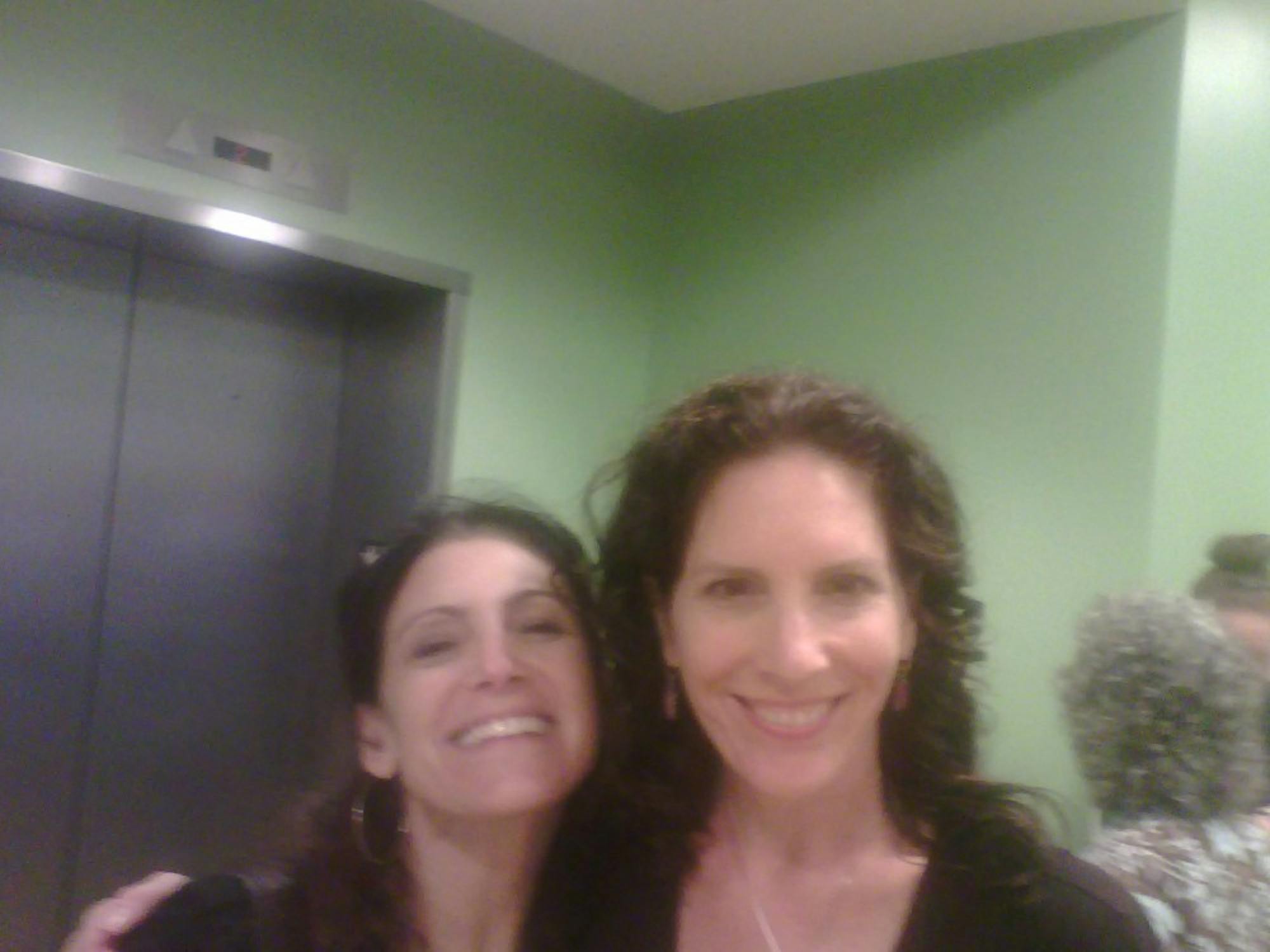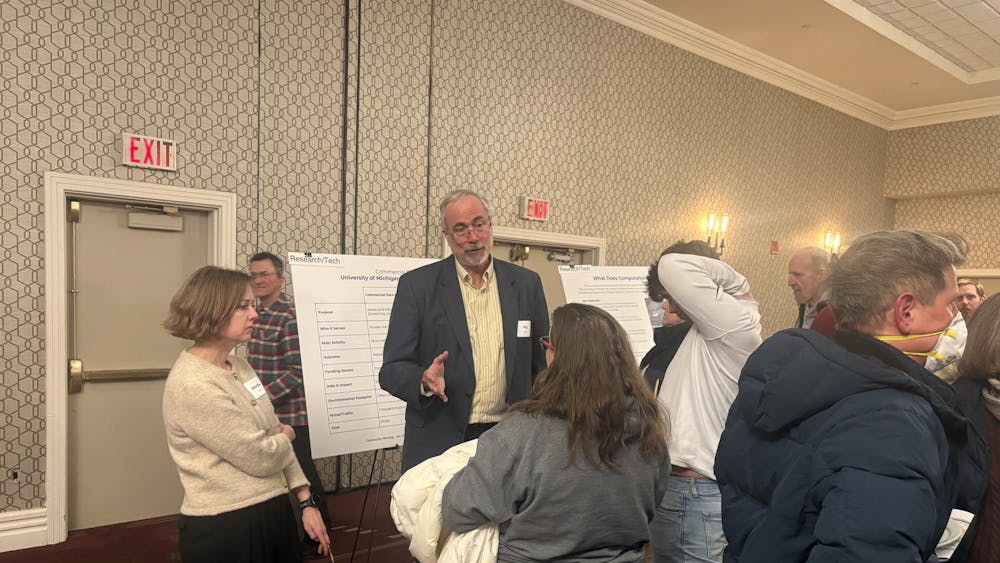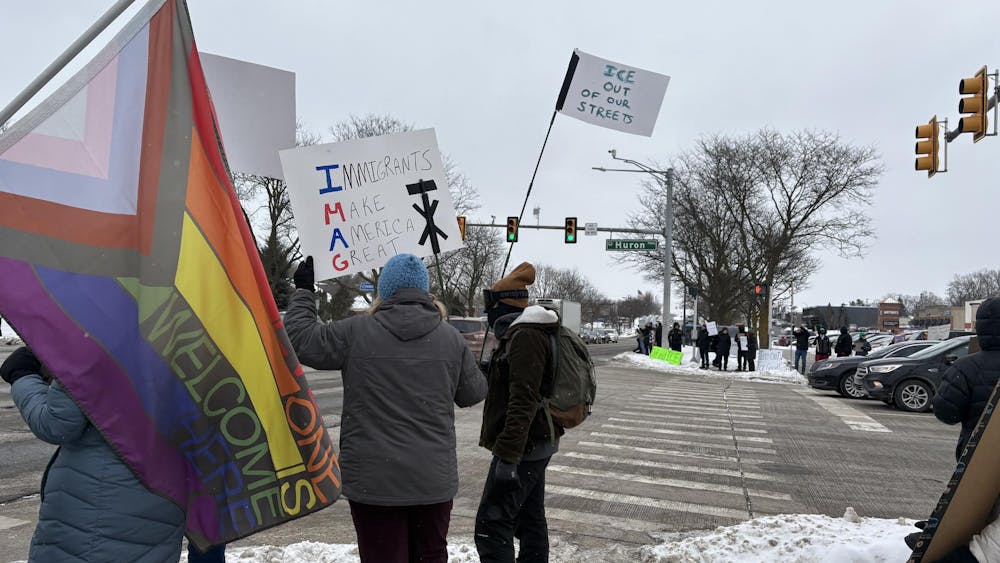The Louise Tumarkin Zazove Foundation held a deaf storytelling event on Saturday night at Eastern Michigan University’s Student Center. This was the second time the event was held at EMU.
Organized by Philip Zazove, the first deaf medical doctor to graduate from the University of Michigan, the event is intended to raise money for scholarships and financial assistance for deaf and hard of hearing students.
The foundation’s website says that the second most common disability in the United States is hearing loss, but many people with hearing loss have lower employment and income levels due to a lack of education.
Just as there are subgroups in every community, there are different types of deaf people in the deaf community. For example, there are those who are born deaf or became deaf later, those who sign or don’t sign and those who have hearing aids or don’t.
This presents a multitude of challenges for deaf students and those who interact with them.
Jacob Mahoney, 5, was born deaf and performed a solo skit with the help of an interpreter, narration on a projector and a wig.
“The biggest challenges are probably schools and hearing people and their ignorance,” said Jacob’s mom, Sharron Dona-Mahoney. She said people who hear don’t understand because nothing on the outside looks different.
Dona-Mahoney learned that Jacob was deaf at birth, but she was already accustomed to the challenges of communication.
“My parents are deaf and I was culturally bilingual, [knowing] sign language and English,” she said.
She thinks what the hearing community doesn’t realize about the deaf community is they’re no different. If there’s a difference, it’s not a disability.
“They have more self- awareness and awareness of their community and the people around them,” she said. “So they, in all actuality, pay more attention to life because they’re not disturbed or interfered with trying to listen all of the time, so they’re a little more intuitive.”
“The healthiest perspective on deafness is one of cultural rather than clinical deafness,” David Stuckless, a professional sign language interpreter, said. “If a family has a child who they find out is deaf; it’s kind of like being given a baby that speaks Chinese. Like Jacob, who we can see bouncing around like any other 5-year-old, was born into a family that was already deaf. Mom spoke sign language; both of her parent’s grandparents all were deaf.”
But he pointed out there was a difference between that kind of family and one that has never had deafness in the family before.
Terri Fear, who assisted Zazove, pointed out her 14-year-old adopted son, Sammy, who is deaf.
She said he came from a family of 12 and was the only deaf child.
When she and her husband adopted him at 9, he couldn’t sign or speak at all. When he was hungry he rubbed his belly, and when he wanted something to drink he pointed at it.
It took him five years to become functional with American Sign Language. Instead of playing with his siblings, they would just hand him a toy to look at. But now, when he sees them they can communicate because he can sign.
“It would be so nice if everybody, or if 80 or 90 percent of people who could hear, could sign,” Glenn Wall-Stewart, another performer who has been deaf since he was seven months old, said. “For example: there’s a guy right next to you who’s interpreting for you right now. He can hear. Imagine if you could sign and you didn’t have to have him sitting here. Then you would have access.”
Wall-Stewart said that while he has skill and talent, he can’t just go out and get what he wants in life because of the language barrier. He believes increasing the number of programs and the quality of deaf education will give deaf children a more positive future.
“Look at Zazove; he’s a doctor,” Wall-Stewart said. “He overcame great challenges and he’s a great influence. Meaning, if he could become a doctor, why couldn’t any deaf person become a doctor?” “I think that people think that if you can speak and you can hear than you’re intelligent,” Dona-Mahoney said. “There are a lot of people who talk who aren’t.”










